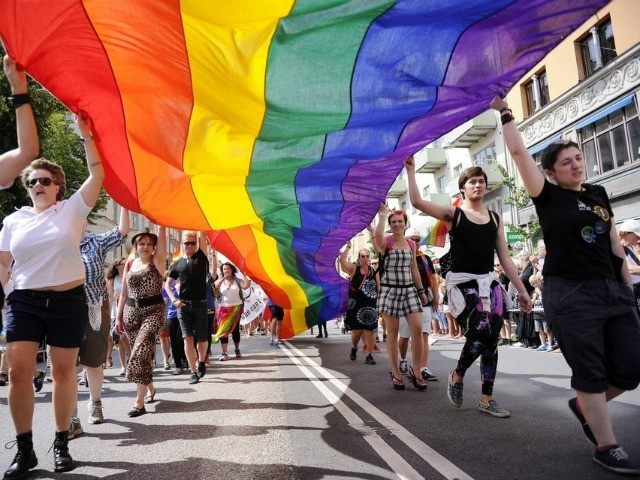On Jan. 16, the U.S. Supreme Court announced that it will take up a series of appeals involving the constitutionality of gay marriage, deciding once-and-for-all whether there it is an inherent right. Gay marriage advocates are confident that the ruling will go their way, after the 2013 ruling in Hollingsworth v. Perry allowed California’s Proposition 8 to be voided, and the simultaneous ruling in U.S. v. Windsor struck down the Clinton-era Defense of Marriage Act at the federal level.
If the Court does uphold same-sex marriage as a constitutional right, it will mark a stunning transformation of marriage in less than seven years.
In 2008, voters in California, easily one of the most liberal states, passed Proposition 8, which made traditional marriage the only form of marriage recognized in the state, overturning an earlier ruling by the state’s courts. Rather than make their case again to the voters, gay marriage advocates took to the courts, dominated by liberal judges.
They were assisted by state officials such as then-California Attorney General Jerry Brown, who refused to defend the state’s law, just as U.S. Attorney General Eric Holder refused to litigate in favor of the Defense of Marriage Act.
Though attitudes toward gay marriage were rapidly changing around the country as gay marriage advocates changed their tactics–running ads showing gay couples doing the same things traditional couples do, for example–liberal justices pushed ahead.
The situation risked becoming another Roe v. Wade, where the Court waded into the abortion controversy even though many states were in the process of legalizing abortion in some way. The result was that the issue has been polarized for decades, and conservative Americans became ever-more suspicious of a judiciary clearly eager to impose its personal preferences in matters of social policy rather than ruling on the basis of precedent and the actual text of the constitution.
The current Supreme Court, wary of creating a new Roe v. Wade divide, has left open the possibility that states could decide the gay marriage issue for themselves. It overturned Proposition 8 on procedural grounds, ruling that the plaintiff who intervened in place of the State of California did not have standing to do so. And it struck down the federal Defense of Marriage Act without ruling on the underlying constitutional issues, such as whether marriage is a matter of equal rights.
The latter argument is bound to be the most controversial. There is no doubt that the drafters of the equal protection clause of the Fourteenth Amendment had no inkling that it would even be used to justify gay marriage.
In fact, the Republican Party, which led the push for the post-Civil War 13th, 14th, and 15th amendments, had organized partly on the basis of defending traditional marriage against polygamy, as well as on the basis of opposition to expanding slavery into new states.
However, the Court has shown considerable deference to the idea that equal protection is a valid issue in the dispute. That, in turn, may lead to controversial arguments when the Court holds its formal hearing on the issue, sometime in late April.
Gay marriage advocates may find that the Court asks questions about polygamy and incest–two issues that they have long maintained have no relevance to the issue–as Justices probe just how far the limits to equality extend–and on what basis.
The Court was prompted to take up the case by the emergence of several recent rulings upholding state laws on traditional marriage, which run against the general trend of striking those laws down, including a Sixth Circuit ruling and a ruling in the federal District Court of Puerto Rico.
While conservatives took heart at the reasoning in those cases, advocates for gay marriage as a national right were excited by the prospect of returning to a friendly, albeit “conservative,” Supreme Court.
One issue that could restrain the Court is the question of religious freedom. Following the 2013 rulings, there have been several lower court rulings holding that businesses did not have the right to refuse service to gay people, even if that service violated the religious beliefs of the business owners. Last year, however, in the Hobby Lobby case, the Court ruled 5-4 that religious objections by business owners were valid reasons not to force those businesses to offer certain contraceptives.
That continued deference to religious freedom might caution the Court not to make gay marriage a matter of fundamental right on the national level, yet to find a way to ensure that the states may continue to define marriage for themselves–perhaps while ruling that states have to honor gay marriages performed in other states.
Regardless, the decision is likely to be a timely reminder that the next president will likely have the opportunity to make several key Court appointments.
This post has been corrected to replace an inadvertent error regarding the scope of the Defense of Marriage Act.
Senior Editor-at-Large Joel B. Pollak edits Breitbart California and is the author of the new ebook, Wacko Birds: The Fall (and Rise) of the Tea Party, available for Amazon Kindle.
Follow Joel on Twitter: @joelpollak

COMMENTS
Please let us know if you're having issues with commenting.